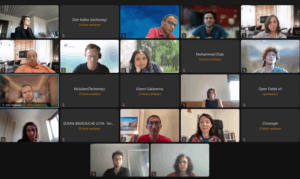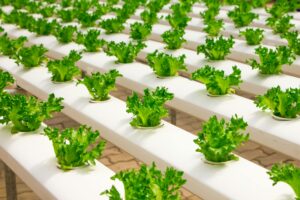by Angelo Riccaboni – Chair of PRIMA Foundation
It is necessary and urgent that agri-food systems evolve towards more sustainable models from an environmental and social point of view. Greenhouse gases emitted by agricultural production and livestock farming must be drastically reduced, as well as food waste and losses; the soil, natural resources and biodiversity must be respected more decisively; every person must have access to healthy and nutritious food; diets more attentive to individual and collective well-being must spread faster.
These requests are present not only in the “Farm to Fork” implementation strategy of the European Green Deal and in the global debate towards the Food Systems Summit (FSS) on 23 September, but also in the agendas of the G7, G20 and COP26. Moreover, private actors, such as large companies and finance are progressively shifting their attention and practices towards more sustainable-oriented actions and targets.
Significantly, the G20 final statement has underscored that: there is no time for further inaction; that innovation is essential; that farmers should be placed at the centre of the transition
The recent IPPC report demonstrates that, in terms of climate change, we no longer have time to reduce CO2 emissions and that only a scenario of concrete, rapid and significant emission reductions will allow us not to incur irreparable damages at a social, environmental and economic. In this frame, it is well known that the Mediterranean case is even more complex and articulated. The EC joint communication on a new Agenda for the Mediterranean has highlighted the positive role that the food sector can have.

Significantly, the G20 final statement has underscored that: there is no time for further inaction; that innovation is essential; that farmers should be placed at the centre of the transition; that States will form specific Alliances to tackle the most urgent issues and that “there is no one-size-fits-all solution” valid in all contexts. From the latter derives that strategies for sustainable and resilient transformations shall be adopted considering the different local conditions, cultures, histories, production systems, consumption patterns and traditions. Institutions at any level and all social and economic actors are called upon to provide their contribution, including businesses.
PRIMA is aligned with the challenges and the objectives defined at global and regional level. It has funded projects to reduce food loss and food waste, which is one of the main targets and outcomes of the Food System Summit, and to improve the resilience and productivity of smallholders and farmers, which shall be at the core of our attention and investments. It has also promoted solutions on precision agriculture, efficient irrigation, conservative agriculture which are the frontier of innovation applied to the agrifood sector.
All the 129 projects funded, PRIMA has fostered innovation, which is the crucial element to achieve the sustainability needed for preserving the planet and the ecosystems and ensure a fair productivity for all the business actors involved in the food value chain
In fact, in all the 129 projects funded, PRIMA has fostered innovation, which is the crucial element to achieve the sustainability needed for preserving the planet and the ecosystems and ensure a fair productivity for all the business actors involved in the food value chain, which are essential to ensure economic development and social inclusion.
In this frame, the role of Research and Innovation Programmes have a great role to play to develop a R&I community, as PRIMA has already started to create, and to promote science-based solutions to address the pressing challenges related to climate change. The integrated-nexus approach PRIMA is pursuing is also in line with the multiple interconnections that the water and agrifood sectors have with other critical areas such as environment, health and energy, which are all strategic for the required transition.

Based on the outcomes of the Food System Summit and in light of the specific Euro-Mediterranean context in which PRIMA is operating, we believe that there are great potentials for our Initiative to express its ambitions and expand its impact, by taking into account the emerging priorities, by valorizing the funded projects, and by acting as a platform of cooperation able to enhance multistakeholder engagement and commitment. PRIMA can also join and support the local, regional and global coalitions that will now implement the main outcomes of the Food Systems Summit (https://www.fao.org/food-coalition/en/).
The years to come will be crucial to advance in the transformations we all want to see. Food has been recognized as central from social, economic and environmental point of view. Academia, business sector, civil society, farmers and citizens, with the crucial support of Institutions, States and finance can all make sure that more sustainable food systems are built, leaving no one behind.
Food System Summit – Angelo Riccaboni – Chair of PRIMA Foundation, Barcelona



